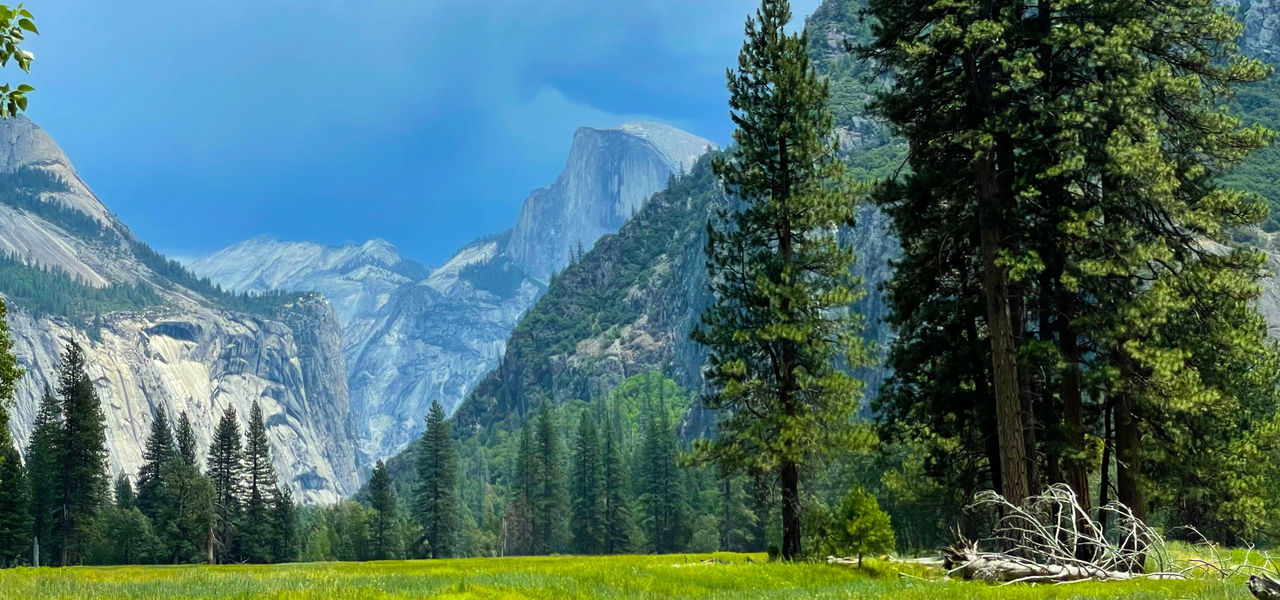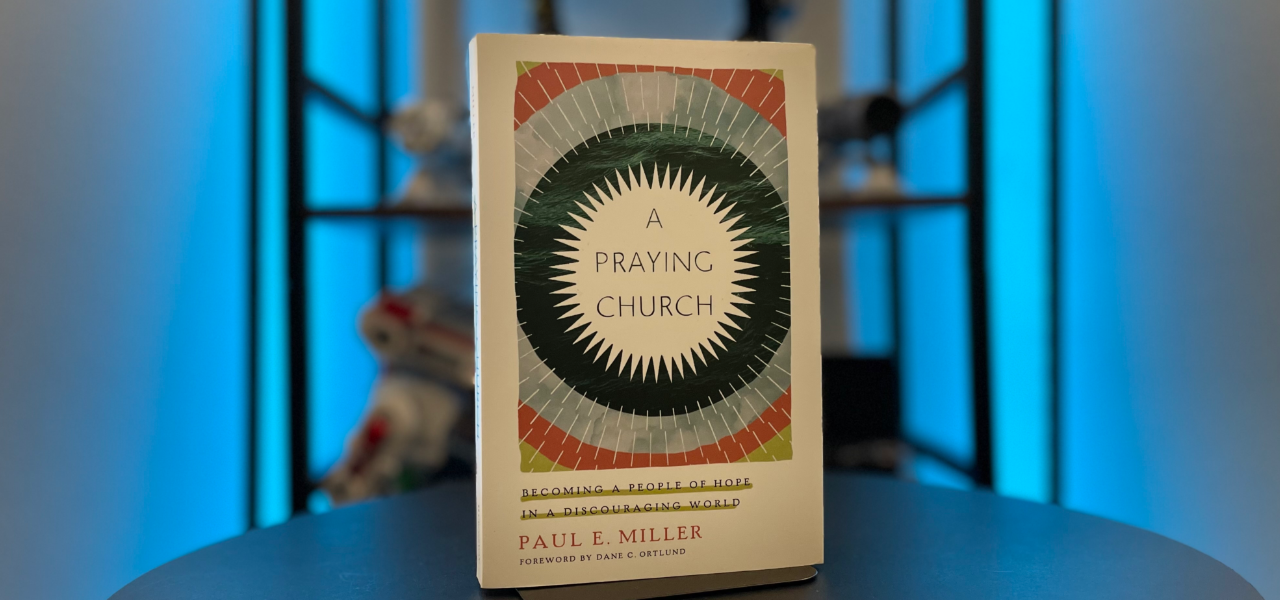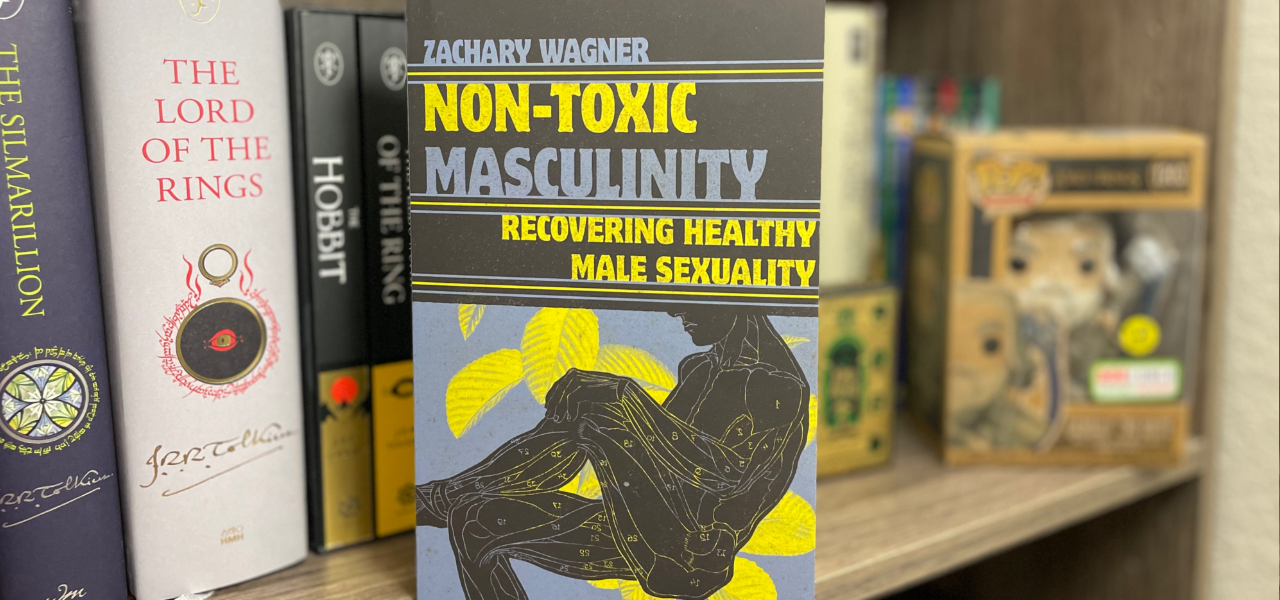What Makes Jesus Weep? A Palm Sunday Meditation

Palm Sunday is the day on the Church calendar that has been historically set aside to remember the Triumphal Entry of Jesus. One week before Easter, Jesus rode toward Jerusalem as people spread palm branches and clothes before him to praise him as the Messiah.
This is the beginning of the week leading up to his crucifixion. So as we enter into this week and begin looking toward Easter Sunday it’s fitting, to begin with, this story, and I want to primarily look at Luke 19 and John 12 and consider the question: What makes Jesus weep? To start let's consider Luke 19:35-44.
Then they brought it (the colt) to Jesus, and after throwing their clothes on the colt, they helped Jesus get on it. As he was going along, they were spreading their clothes on the road. Now he came near the path down the Mount of Olives, and the whole crowd of the disciples began to praise God joyfully with a loud voice for all the miracles they had seen: Blessed is the King who comes in the name of the Lord. Peace in heaven and glory in the highest heaven! Some of the Pharisees from the crowd told him, “Teacher, rebuke your disciples.” He answered, “I tell you, if they were to keep silent, the stones would cry out.” As he approached and saw the city, he wept for it, saying, “If you knew this day what would bring peace—but now it is hidden from your eyes. For the days will come on you when your enemies will build a barricade around you, surround you, and hem you in on every side. They will crush you and your children among you to the ground, and they will not leave one stone on another in your midst, because you did not recognize the time when God visited you.”
As we consider this question, let’s back up a few verses from John's telling of the Palm Sunday narrative and consider John 11. There Jesus is at the tomb of his friend Lazarus and weeps.
John 11:32-36
As soon as Mary came to where Jesus was and saw him, she fell at his feet and told him, “Lord, if you had been here, my brother wouldn’t have died!” When Jesus saw her crying, and the Jews who had come with her crying, he was deeply moved in his spirit and troubled. “Where have you put him?” he asked. “Lord,” they told him, “come and see.” Jesus wept. So the Jews said, “See how he loved him!”
Now the words deeply moved in his spirit and troubled carry more of an emotional weight than simply sad. Deeply moved means to be very angry or moved to indignation. The root word carries the idea of snorting with anger. The word for troubled means to be agitated or restless. Jesus was bothered and even angry. These are the emotions that Jesus is feeling while he begins crying.
Now, these deep emotions are not directed at his friends, but at death and sin. Theologian BB Warfield said…Inextinguishable fury seizes upon him. It is death that is the object of his wrath, and behind death him who has the power of death, and whom he has come into the world to destroy. Tears of sympathy may fill his eyes, but this is incidental. His soul is held by rage. ... The raising of Lazarus thus becomes, not an isolated marvel, but . . . a decisive instance and open symbol of Jesus' conquest of death and hell. What John does for us... is to uncover for us the heart of Jesus, as he wins for us our salvation. Not in cold unconcern, but in flaming wrath against the foe, Jesus smites in our behalf. He has not only saved us from the evils which oppress us; he has felt for and with us in our oppression, and under the impulse of these feelings has wrought out our redemption.' (Warfield, Person and Work of Christ, 117)
John Calvin said…Christ does not approach the sepulcher as an idle spectator, but as a champion who prepares for a contest; and therefore we need not wonder that he again groans; for the violent tyranny of death, which he had to conquer, is placed before his eyes. (https://www.studylight.org/commentaries/eng/cal/john-11.html (vs. 38))
Jesus is so passionate against evil and death and how they afflict us that he literally bursts into tears and then moves into action. Now, the main story that we are considering today is a triumphant one, and it doesn’t seem like one that calls for weeping. It makes sense that Jesus would feel these emotions and be moved into action at the tomb of his friend. But in our story, Jesus is not joining a gathering of grief, but of celebration. Jesus enters the city of Jerusalem and is hailed and praised as the Messiah, as the King. This moment was the fulfillment of prophecy. (Zechariah 9:9)
The people have been waiting for this moment for hundreds of years. Their Messiah was finally here. And they rightfully begin praising God and as they do so they are Psalm 118:26, which is a messianic psalm.
Psalm 118:26-29
He who comes in the name of the LORD is blessed. From the house of the LORD we bless you. The LORD is God and has given us light. Bind the festival sacrifice with cords to the horns of the altar. You are my God, and I will give you thanks. You are my God; I will exalt you. Give thanks to the LORD, for he is good; his faithful love endures forever.
Now, this was no mere accident. These people rightly understood Jesus as the Messiah and their King. This is why the Pharisees tell Jesus to silence his followers. He was a threat to their authority and they feared Roman backlash. I love Jesus’s response. He tells the Pharisees that if these people are silent the rocks will have to cry out. Jesus will be praised one way or another. The kingdom of God was coming. This was not a moment for silence or a tepid celebration. This was a moment to declare! This was a moment for praise.
Jesus is King. He was coming to inaugurate his kingdom. And his kingdom will bring peace to every nation. What an amazing moment.
The beauty of Palm Sunday is we rejoice and celebrate the Kingship of Jesus. He is our Messiah. He is the long-expected one who would bring peace to all nations. We rejoice and celebrate that true peace is found in his person and in his kingdom. What a triumph this moment, the very first Palm Sunday, was.
So why, then, does Jesus weep as he approaches the city?
As we consider this moment and we see the response of Jesus, we see that there was some misunderstanding of what the kingdom of God entailed at this moment. They rightly understood Jesus as their Messiah. They rightly responded in praise to Jesus as the Messiah. But they wrongly understood what the Messiah would do at that moment. And the ramifications of that caused Jesus to weep.
But as we place ourselves if we put ourselves in the position of this crowd it’s easy to begin to understand why they thought Jesus was going to establish a physical kingdom. Consider Zechariah.
Zechariah 9:9-10
Rejoice greatly, Daughter Zion! Shout in triumph, Daughter Jerusalem! Look, your King is coming to you; he is righteous and victorious, humble and riding on a donkey, on a colt, the foal of a donkey.
I will cut off the chariot from Ephraim and the horse from Jerusalem. The bow of war will be removed, and he will proclaim peace to the nations. His dominion will extend from sea to sea, from the Euphrates River to the ends of the earth.
They very easily could have understood this moment to bring about the literal end of war on earth and peace to all nations. Perhaps even through the overthrow of Rome. In John 6:14-15 many realize that Jesus is the Messiah whom they had been waiting for and they try to force him to be the new King of Jerusalem. Consider what the prophet Zechariah said in chapter 14.
Zechariah 14:3-5
Then the LORD will go out to fight against those nations as he fights on a day of battle. On that day his feet will stand on the Mount of Olives, which faces Jerusalem on the east. The Mount of Olives will be split in half from east to west, forming a huge valley, so that half the mountain will move to the north and half to the south. You will flee by my mountain valley, for the valley of the mountains will extend to Azal. You will flee as you fled from the earthquake in the days of King Uzziah of Judah. Then the LORD my God will come and all the holy ones with him.
So imagine, they see Jesus triumphantly riding into Jerusalem on this colt, fulfilling prophecy, and heading towards the Mount of Olives. (Luke 19:29) They had to be thinking, this it! He is going to begin his rule from the throne of David. Rome will be eliminated. Justice will be done. We will be at peace. This is partly why when Jesus would tell them he had to first die, they wouldn’t get it. They thought the Messiah would establish his earthly rule right away.
Now we might wonder, why didn’t Jesus just plainly tell them so they could rightly understand. And the answer is, he did! (Mark 8:29-32) The Old Testament prophesied about the Messiah’s death, but when Jesus taught that, it didn’t click. In Mark 8, Peter wrongly understood what the Messiah would initially do and Jesus said that he was concerned about human concerns and not God’s concerns.
In Luke 18:31-34, Jesus tries to help them rightly understand the Old Testament prophecies about the Messiah but they were focused on earthly things. Jesus weeps because he knows Jerusalem does not recognize that God was among them and because their rejection of him will lead to his crucifixion but also their judgment. And as a result, his heart breaks. The love of Jesus is so great that he weeps for those who would reject him and crucify him.
Just as Jesus was deeply troubled at the tomb of Lazarus, his soul is again deeply troubled as he considers Jerusalem’s impending rejection of him and the destruction that rejection would bring.
Now this rejection and misunderstanding were prophesied. John tells us this in his account of the Palm Sunday narrative.
John 12:27-41
“Now my soul is troubled. What should I say—Father, save me from this hour? But that is why I came to this hour. Father, glorify your name.” Then a voice came from heaven: “I have glorified it, and I will glorify it again.” The crowd standing there heard it and said it was thunder. Others said, “An angel has spoken to him.” Jesus responded, “This voice came, not for me, but for you. Now is the judgment of this world. Now the ruler of this world will be cast out. As for me, if I am lifted up from the earth I will draw all people to myself.” He said this to indicate what kind of death he was about to die. Then the crowd replied to him, “We have heard from the law that the Messiah will remain forever. So how can you say, ‘The Son of Man must be lifted up’? Who is this Son of Man?”
They understood that Jesus was telling them he had to die. And as this reality sinks in these people’s misunderstanding of the Messiah begins to surface. Jesus pleads with them to turn to the light! The passage continues and says…
Jesus answered, “The light will be with you only a little longer. Walk while you have the light so that darkness doesn’t overtake you. The one who walks in darkness doesn’t know where he’s going. While you have the light, believe in the light so that you may become children of light.” Jesus said this, then went away and hid from them.
Jesus is explaining what is actually happening, pleading with them to believe. Then there is the heartbreaking but prophesied reality comes to fruition.
Even though he had performed so many signs in their presence, they did not believe in him. This was to fulfill the word of Isaiah the prophet, who said: Lord, who has believed our message? And to whom has the arm of the Lord been revealed? This is why they were unable to believe, because Isaiah also said: He has blinded their eyes and hardened their hearts, so that they would not see with their eyes or understand with their hearts, and turn, and I would heal them. Isaiah said these things because he saw his glory and spoke about him.
Jesus weeps because people miss where real peace is found.
Now even after the resurrection, the disciples still struggled to understand. They were still thinking earthly kingdom. They still thought Jesus was going to restore the nation then and there.
Now before we get too hard on the disciples, let’s have a moment of self-awareness. All of us at times look to earthly solutions to find peace. And sometimes that is the result of misunderstanding Scripture. Sometimes that is the result of misplaced priorities. Sometimes that is the result of earthly concerns, not Godly ones. But I love how Jesus responds to his disciples and the instructions he leaves all of us with.
Acts 1:4-8
While he was with them, he commanded them not to leave Jerusalem, but to wait for the Father’s promise. “Which,” he said, “you have heard me speak about; for John baptized with water, but you will be baptized with the Holy Spirit in a few days.”
So when they had come together, they asked him, “Lord, are you restoring the kingdom to Israel at this time? He said to them, “It is not for you to know times or periods that the Father has set by his own authority. But you will receive power when the Holy Spirit has come on you, and you will be my witnesses in Jerusalem, in all Judea and Samaria, and to the ends of the earth.”
I love these verses because Jesus helps his disciples, and us, see that what they were looking for is still coming but not yet. Jesus is helping his disciples by telling them: “God will make everything right that you are so longing to see made right.” There will be a moment when the spiritual Kingdom of God is made physical and perfect on earth. And he graciously corrects them, and us, by showing us that God our Father will execute that moment in his timing. That’s God's job, not our job. As much as we long to know when that moment will be, it’s not for us to know. The answer for us, at this moment, is to be witnesses of Jesus by the power of the Holy Spirit.
So, what makes Jesus weep? Sin and death.
The answer? Jesus.
The Holy Spirit of God, which is the promise of the Father, who leads us, his Church, to be witnesses of the love of Jesus. The answer is Jesus. Only Jesus. Forever Jesus. The answer for what we seek is Jesus.
So as we look towards Good Friday and Resurrection Sunday, let’s remind ourselves where real peace is found. In the person of Jesus. As we are confronted with the brokenness of this world, let’s remind ourselves that the answer to the world’s brokenness is Jesus. And let’s renew our passion for the mission of being witnesses of the steadfast love of Jesus.
This is a shortened version of the Palm Sunday message I preached at Fresno Church. To listen, watch, or download a transcript of my notes
you can click here.




